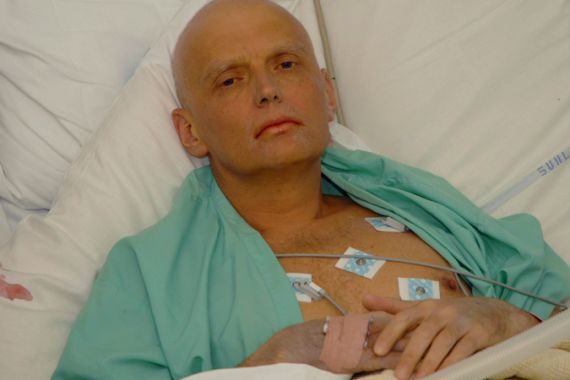UK’s Litvinenko inquest suffers setback
Judge leading probe into death of ex-Russian spy in London upholds government request to withhold crucial evidence.

A long-delayed inquiry to determine circumstances that led to the death of Alexander Litvinenko, the Russian intelligence officer, could be abandoned after the official responsible for leading it partly upheld a British government request to withhold crucial evidence.
Robert Owen, a senior judge acting as coroner, said on Friday that keeping some of the evidence secret would make it impossible to hold a “full, fair and fearless inquiry” into the death of Litvinenko, who died in London in 2006 from radioactive poisoning.
Without being able to assess all the evidence in open hearings, Owen said he would be unable to “discharge my duty to undertake a full, fair and fearless inquiry into the circumstances”.
“The inquiry would be incomplete and a verdict potentially misleading and/or unfair,” he wrote in the ruling, which was partly censored for security reasons.
Under British law, an official investigation called an inquest is held to determine the cause of death when a person dies unexpectedly. The inquest’s head is known as a coroner.
William Hague, Britain’s foreign secretary, made the request to withhold evidence relating to the possible involvement of the Russian state in Litvinenko’s death and whether it could have been prevented.
Owen also agreed to keep secret information that could undermine trust in the British government or “cause real harm to the UK’s international relations”.
A further hearing is due on June 11 when the coroner will announce the next step.
Vocal critic
A spokesman for the British government said: “The government will carefully consider this judgement.”
Litvinenko, 43, was a vocal critic of Vladimir Putin, the Russian president, and died after drinking polonium-210, a radioactive isotope that had been slipped into his tea at a London hotel in 2006.
In a deathbed statement, he accused Putin of ordering his murder, a claim Russia has denied.
His death plunged relations between London and Moscow to a post-Cold War low. But David Cameron, the British prime minister, visited Russia this month as part of efforts to improve ties.
The British authorities could now order a form of inquiry that would allow evidence to be heard in secret instead of an inquest.
Litvinenko’s widow Maria said she was “utterly dismayed” by the ruling, which she described as a political fix to help Russia and Britain rebuild their relations.
“All those concerned with exposing the truth will be shocked and saddened that a political deal has been done between the two governments to prevent the truth from ever seeing the light of day,” she said in a statement.